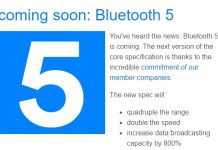 On The Passive Voice, Passive Guy posted a question about Amazon/Audible audiobook rates and payouts on behalf of his wife, an author herself. She had heard from a friend that their audiobook narrator no longer wanted to work with Audible on a royalty basis because the $1.99 Amazon Whispersync price for Audible books was driving down royalty rates, and wondered if this was a common issue. The question led to some interesting discussion from Passive Voice readers with experience in publishing and audiobooks, and some interesting revelations I hadn’t considered before.
On The Passive Voice, Passive Guy posted a question about Amazon/Audible audiobook rates and payouts on behalf of his wife, an author herself. She had heard from a friend that their audiobook narrator no longer wanted to work with Audible on a royalty basis because the $1.99 Amazon Whispersync price for Audible books was driving down royalty rates, and wondered if this was a common issue. The question led to some interesting discussion from Passive Voice readers with experience in publishing and audiobooks, and some interesting revelations I hadn’t considered before.
For those who weren’t aware, Amazon and Audible have implemented a deal where anyone who buys the Kindle edition of a book is automatically offered the chance to add the Audible audiobook for another few dollars. (Many are just $1.99, though they can go as high as $12.99.) If they do this, they can switch between the Kindle e-book and Audible audiobook versions for their reading or listening and each will pick up where the other left off.
Because the royalty payment for the audiobook is based on the purchase price, those $1.99 audiobooks are not very lucrative (especially after the ACX royalty cuts of last year). A lot of authors don’t have a problem with that, because that extra $1.99 purchase is an extra impulse-buy that e-book buyers wouldn’t have made anyway without that prompting. It’s extra money for them that they wouldn’t otherwise have gotten. (That’s how it’s been for me. Even though I’m not terribly fond of Audible’s player software, how can I resist two bucks for an audiobook of something I already wanted enough to buy as an e-book?)
But audiobook producers and other authors are disappointed by seeing their average earnings per audiobook sale fall with so many $1.99 sales. (They also aren’t especially thrilled by the Audible subscription credit sales, as they get a lower payment from those than someone paying full price for the audiobook.) Some have even resorted to trying to break the Whispersync pairing between e-book and audiobook so the $1.99 sale isn’t offered, with only limited success.
Another thing that interested me was the reminder that ACX, the Audiobook Creation Exchange which is the source of Audible/Amazon and iTunes audiobook titles, seems to have become the only game in town where audiobooks are concerned these days. I suppose that makes sense. It used to be books came on tape or CD, and anyone could play those—but now that they’re digital, the people who make the player software control the output.
One commenter, Jack C. Nemo, pegged ACX as “roughly 97% of the market” for audiobooks. If you don’t go with them, you’re left hoping someone can actually find whatever independent audiobook you do end up making. Nemo notes:
Now if Google pulled their heads out of their rears and set up a competitive service against ACX they’d probably get a ton of business quickly. However, they haven’t even set up a competitive, supplier-friendly ebook store and that should have been easy for them.
It’s interesting to consider that audiobooks have royalty issues that often get short shift compared to the more widely-known e-book matters. It will be interesting to see how it all shakes out.

































I am no fan of big government, in part, because when their intervention is needed most, it often doesn’t happen. Big business finds ways to pay off the politicians of big government.
When Amazon, heavily dominant in print and ebooks sales, wanted to acquire Audible back in 2008, the US government should have said no. And when Amazon wanted to acquire The Book Depository, with its excellent free, worldwide shipping, the Brits should have said no. Neither did.
Which leads to our current mess, with Amazon dominating all the major media by which books are distributed, print, digital and audiobook. It’s like the government in the 1950s allowing GM to control 90% of the automobile, pickup truck, and semi market in the U.S. That would not of happened. GM at its peak was careful to keep its market share below 60% This should not have happened.
It’s gotta sell a LOT to people who never would have purchased it. That’s got to help money in their pocket as long as you can not flinch at the numbers being small on those extra copies.
I wonder how many people normally buy both versions of a book…?
I’m sure at some point with shifting prices someone will realize that SOME books it’ll be cheaper to buy the book and the audiobook for cheaper than just the audio book.
I find the argument ridiculous. If I can’t get an audio book free or cheap, I won’t buy it. I love that I can get audio books through Amazon for under $4 by borrowing the library book, and getting the whispersync companion. I would never, ever pay the full price for an audio book, nor would I pay the $15 a month for Audible. Isn’t my $2 better than nothing for these content creators? Because that’s what they would get from me otherwise. Nothing.
Sorry, Anne, but as an audiobook creator I have had to lay out nearly $300 per finished hour of an audio book for the narrator’s and studio fees. So, if a book comes in at 7 hours of listening time, that book cost me, the publisher, $2100 not counting the editing fees, marketing, etc. Having Audible then sell the audiobook for a mere $1.99 , of which I get 25% leaves me with a whopping .50 for all my time and labor. Is this better than nothing? Well, actually, no, it is not. Do you work for free? Or for $.50 an hour?
Yes , I was fully aware that Amazon has become an almost monopoly for audio books. When BooksonBoard dissapeared I couldn’t find a source for audio books in mp3 format, so I couldn’t buy because at that time I didn’t have an Smartphone and now I don’t care anymore.
I have switched to BBC drama radio. My main use for audio books is to practice my English listening skills, and I found it was nice to listen to what f was reading and sometimes to read outloud after listening to the correct pronunciation. Some BBC dramatizations provide to that need.
If I’m not able to own the audio books I buy, I’m not going to buy them. And at the time I couldn’t find and easy way to get rid of Audible’s DRM
There’s a bigger issue, I think. More authors are upset about the audiobook situation in general rather than just the bundled audiobooks.